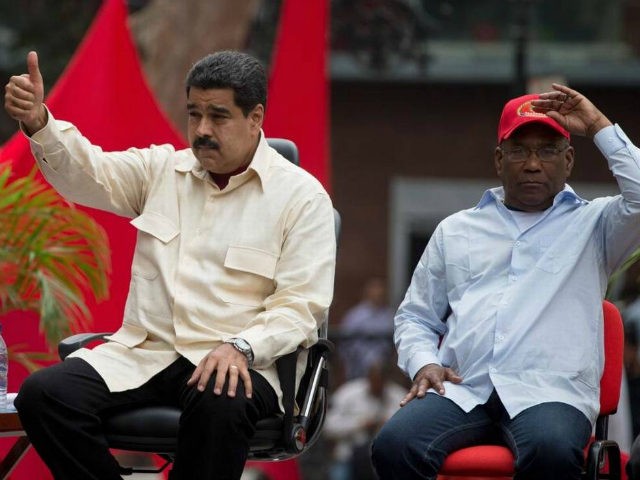The government of Venezuela will not be paying employees of the National Assembly, including the legislators who work there. The socialist government has refused to appropriate funds for their salaries since the pro-democracy opposition swept legislative elections in December.
National Assembly President Henry Ramos Allup of the anti-socialist Democratic Action Party (AD) announced Wednesday that he is unable to pay any of the employees who work to keep Venezuela’s legislature running, including the legislators themselves. “There is no money to pay salaries this month because the Government will not send us the money,” Ramos Allup told journalists.
“Legislators, employees, and workers should know that if we cannot give you pay checks, you should go to the Ministry of Economics or Miraflores [the presidential palace] and ask for your wages there, because I don’t have anything to pay you,” he added.
Allup warned the socialist government on Twitter that their attempts to keep the legislature from working to depose the entrenched regime of President Nicolás Maduro would fail. “In the time of [1800s Venezuelan president Antonio] Guzmán Blanco there was no electricity in the Federal Legislative Palace, and Parliament had sessions,” he tweeted. “If you want, take the lights, too.”
Cuando Guzmán Blanco no había electricidad en el Palacio Federal Legislativo y Parlamento sesionaba. Si quieres róbanos la luz también.
— Henry Ramos Allup (@hramosallup) April 29, 2016
Agence France-Presse recalls that, before the sweeping anti-socialist victory in the Venezuelan legislature in December 2015, former Assembly head Diosdado Cabello warned the government may leave the new deputies without pay. “What we could paralyze is the Assembly, because the Assembly I don’t think will receive a cent from this moment on,” he said shortly after the election.
The government of President Maduro has had mixed results in containing the influence of the opposition legislature. An attempt to build a “communal parliament” made of Chavistas to erase the influence of the National Assembly failed. Maduro has nonetheless been able to block the legislature’s first effort to undo the damage done under Maduro: an amnesty bill to free the nation’s political prisoners.
Maduro has had numerous political opponents arrested on charges of subversion, including the mayor of the western regional capital San Cristóbal, Daniel Ceballos; the mayor of the national capital, Caracas; and the leader of the opposition party Popular Will, Leopoldo López. A bill to free all three, as well as all of the nation’s prisoners of conscience, passed easily through the National Assembly, only to be vetoed shortly thereafter. Maduro has also ordered the Supreme Court to declare the bill unconstitutional, alleging that it aids “terrorists.”
The opposition is now working on a democratic effort to oust Maduro, gathering signatures to force a recall election. The nation’s election commission has demanded the opposition collect 200,000 signatures in an initial push; should that be successful, they must collect nearly four million in three days to force a recall vote. The opposition began collecting votes Wednesday and asserts that it has already gathered 1,102,236 signatures, far more than the 200,000 needed in the first round.
On Friday, Ramos Allup announced he was traveling to the infamous Ramo Verde prison to demand entry and collect the signature of Leopoldo López. “Any soldier or civilian present there is also welcome to sign,” he added. Opposition members are sharing a photo of a soldier in full National Guard uniform attending a signature collecting event and adding his name — a sign, many argue, that Venezuelans no longer fear the government.
@hramosallup Si ellos lo hicieron #SinMiedo y con él uniforme puesto, bienvenido a todos los q quieran mejorar esto! pic.twitter.com/jtk0PbQ0yF
— Con_Fe350 (@Con_Fe350) April 29, 2016
Maduro has dismissed the recall effort. “Nothing that they’re doing is going to be politically viable,” he said in a speech earlier this week. “The revolution will continue and will have this president until 2018.”

COMMENTS
Please let us know if you're having issues with commenting.